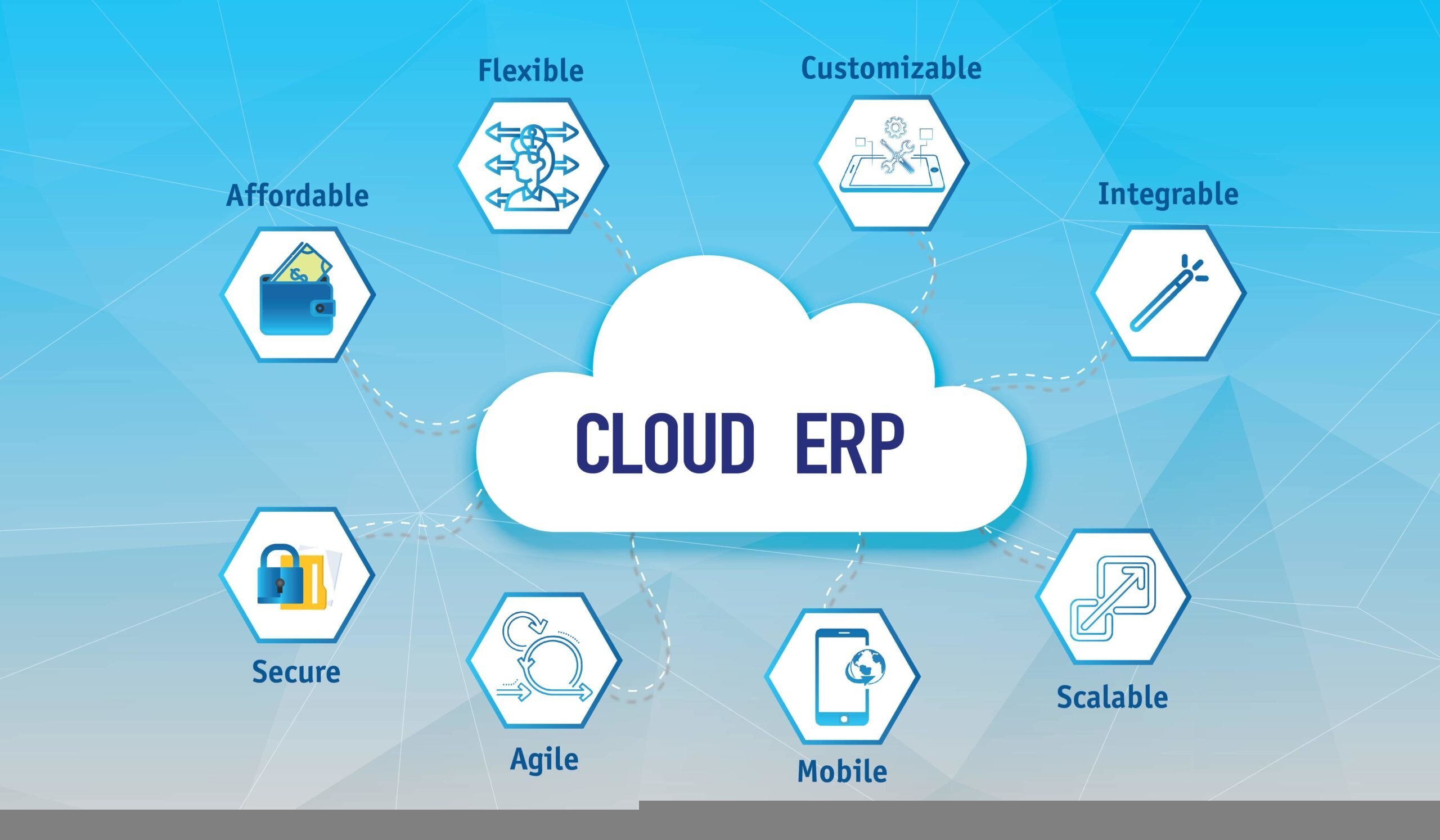Welcome to the world of cloud ERP solutions for small businesses! If you are a small business owner looking to streamline your operations, increase efficiency, and improve decision-making processes, then cloud ERP could be the answer you are looking for. With the advancements in technology, cloud ERP systems are now more affordable, accessible, and user-friendly than ever before. In this article, we will explore the benefits of cloud ERP solutions for small businesses and how they can help you take your business to the next level.
The Benefits of Cloud ERP for Small Businesses
Cloud ERP (Enterprise Resource Planning) systems offer a wide range of benefits for small businesses that can improve efficiency, streamline processes, and drive growth. Here are some key advantages of using a cloud ERP system for your small business:
1. Cost-Effective Solution: Cloud ERP solutions are typically more affordable for small businesses compared to traditional on-premise ERP systems. With cloud ERP, there is no need to invest in expensive hardware or software licenses, as everything is hosted and managed by the ERP provider. This helps small businesses save on upfront costs and ongoing maintenance expenses, making it a cost-effective solution for managing their business operations.
Additionally, cloud ERP systems often offer flexible pricing models, allowing small businesses to pay for only the features and resources they need. This scalability means that as the business grows, they can easily upgrade their ERP system to accommodate their expanding needs without incurring significant additional costs.
2. Increased Accessibility and Flexibility: One of the key benefits of cloud ERP for small businesses is the increased accessibility and flexibility it offers. Since the ERP system is hosted in the cloud, users can access it from anywhere with an internet connection, making it ideal for businesses with remote or distributed teams. This accessibility also allows for real-time collaboration and data sharing, enabling employees to work more efficiently and effectively.
Furthermore, cloud ERP systems are typically more flexible than on-premise solutions, as they can easily adapt to changes in the business environment. Small businesses can quickly add or remove users, modules, or features as needed, without the need for extensive customization or upgrades.
3. Enhanced Security and Data Protection: Security is a top priority for small businesses, especially when it comes to sensitive business data. Cloud ERP systems offer advanced security features, such as data encryption, firewalls, and regular security updates, to protect against cyber threats and unauthorized access.
Additionally, cloud ERP providers often have dedicated teams of security experts who monitor and respond to potential security breaches, ensuring that your business data remains safe and secure. This level of protection is essential for small businesses that may not have the resources or expertise to effectively manage their own security measures.
4. Improved Efficiency and Productivity: By centralizing and automating key business processes, cloud ERP systems can help small businesses improve efficiency and productivity. Tasks that were once time-consuming and manual, such as inventory management, financial reporting, and order processing, can now be streamlined and automated through the ERP system.
This automation not only saves time and reduces human errors but also enables employees to focus on more strategic tasks that drive growth and innovation. With real-time data and insights provided by the cloud ERP system, small businesses can make informed decisions quickly and effectively, leading to improved overall performance and profitability.
In conclusion, the benefits of cloud ERP for small businesses are vast and can have a significant impact on the success and growth of your business. From cost savings and increased accessibility to enhanced security and improved efficiency, cloud ERP systems offer a comprehensive solution for managing your business operations effectively.
Implementation Strategies for Cloud ERP
When it comes to implementing a Cloud ERP solution for small businesses, there are several strategies that can help streamline the process and ensure successful adoption. Here are some key strategies to consider:
1. Define clear objectives: Before diving into the implementation process, it is crucial to define clear objectives for what you want to achieve with the Cloud ERP solution. Whether it is to improve efficiency, streamline processes, or enhance decision-making, having well-defined goals will guide the implementation process and help measure success.
2. Conduct a thorough needs assessment: One of the most important steps in implementing a Cloud ERP solution is conducting a thorough needs assessment. This involves analyzing the current business processes, identifying pain points, and determining the requirements for the new system. By understanding the specific needs of your organization, you can tailor the implementation process to address key challenges and ensure a seamless transition.
3. Choose the right solution: With a myriad of Cloud ERP solutions available in the market, selecting the right one for your business is crucial. Consider factors such as scalability, customization options, integration capabilities, and vendor reputation when evaluating potential solutions. It is also important to involve key stakeholders in the decision-making process to ensure buy-in and alignment with business objectives.
4. Develop a comprehensive implementation plan: Once you have selected a Cloud ERP solution, it is important to develop a comprehensive implementation plan that outlines the timeline, budget, resource allocation, and key milestones. This plan should also include a detailed training schedule to ensure that employees are equipped to effectively use the new system.
5. Engage with stakeholders: Successful Cloud ERP implementation requires active engagement with stakeholders across the organization. This includes not only key decision-makers but also end-users who will be directly affected by the new system. By involving stakeholders in the implementation process from the beginning, you can gain valuable insights, address concerns, and foster a sense of ownership and commitment to the project.
6. Prioritize data migration and integration: Data migration and integration are critical components of Cloud ERP implementation. It is important to prioritize these tasks to ensure that data from existing systems is accurately transferred to the new Cloud ERP platform. This may involve cleansing and mapping data, establishing data governance policies, and testing data integrity to prevent any disruptions to business operations.
By following these implementation strategies, small businesses can successfully deploy a Cloud ERP solution that aligns with their unique needs and drives business growth.
Choosing the Right Cloud ERP Provider
When it comes to selecting a cloud ERP provider for your small business, there are several factors to consider. The first step is to assess your company’s specific needs and goals. What are the key functionalities you require in an ERP system? Are you looking for a solution that can streamline your financial processes, improve inventory management, or enhance customer relationship management? Identifying your priorities will help you narrow down your options and focus on providers that offer the features most important to your business.
Once you have a clear understanding of your requirements, it’s time to evaluate potential cloud ERP providers. Look for vendors that have experience working with small businesses in your industry. A provider with a track record of success in your niche is more likely to understand your unique challenges and offer tailored solutions. Additionally, consider the scalability of the provider’s platform. As your business grows, you’ll need an ERP system that can accommodate increased data volumes and user numbers without sacrificing performance.
Another important factor to consider when choosing a cloud ERP provider is the level of customer support they offer. Implementing a new ERP system can be a complex process, and you’ll want a provider that is available to offer assistance when you need it. Look for vendors that provide comprehensive training and ongoing support to help ensure a smooth transition to the cloud. Additionally, consider the provider’s reputation for reliability and security. Your ERP system will be the backbone of your business operations, so it’s crucial to choose a provider that takes data protection seriously.
Cost is also an important consideration when selecting a cloud ERP provider for your small business. While it’s tempting to opt for the cheapest option available, remember that quality comes at a price. Assess the total cost of ownership for each provider, taking into account not only the initial setup fees but also ongoing maintenance and support costs. Look for providers that offer flexible pricing structures, such as pay-as-you-go plans or subscription-based models, to help you manage your budget effectively.
In conclusion, choosing the right cloud ERP provider for your small business requires careful consideration of your specific needs and priorities. Evaluate potential vendors based on their experience, scalability, customer support, reliability, security, and cost to find a provider that offers the best fit for your business. By taking the time to research and compare your options, you can find a cloud ERP solution that will help you streamline your operations and drive growth for your small business.
Integration of Cloud ERP with Existing Systems
When it comes to implementing a Cloud ERP solution for small businesses, one of the key considerations is how to integrate it with existing systems. This step is crucial for ensuring a smooth transition and maximizing the benefits of the new system. Fortunately, Cloud ERP solutions are designed to be easily integrated with a variety of existing systems, including accounting software, CRM systems, and inventory management tools.
One of the main advantages of Cloud ERP systems is that they typically offer a range of integration options to suit different business needs. For example, some Cloud ERP vendors provide pre-built integrations with popular software platforms like QuickBooks or Salesforce, making it easy for small businesses to connect their existing systems with the new ERP solution. These pre-built integrations often come with step-by-step instructions and support from the vendor, making the integration process relatively straightforward.
For small businesses that use more specialized or custom software systems, Cloud ERP solutions also offer the flexibility to create custom integrations. This may involve working with a third-party integration provider or using APIs (Application Programming Interfaces) to connect the Cloud ERP system with other software tools. While custom integrations may require more technical expertise and resources, they can be tailored to meet specific business requirements and ensure seamless data flow between different systems.
Another important aspect of integrating Cloud ERP with existing systems is data migration. Small businesses often have valuable data stored in their current systems, such as customer information, sales records, and inventory data. When transitioning to a Cloud ERP solution, it’s essential to migrate this data accurately to ensure a smooth transition and avoid any disruptions to business operations.
Most Cloud ERP vendors offer data migration services as part of their implementation process. This typically involves extracting data from existing systems, transforming it into the format required by the Cloud ERP system, and loading it into the new system. Vendors may also provide tools and resources to help businesses validate and reconcile migrated data, ensuring its accuracy and completeness.
In conclusion, integrating Cloud ERP with existing systems is a crucial step for small businesses looking to streamline their operations and leverage the benefits of modern technology. With the range of integration options available, from pre-built connectors to custom integrations, businesses can find a solution that fits their needs and budget. By carefully planning and executing the integration process, small businesses can ensure a successful transition to a Cloud ERP solution and pave the way for future growth and success.
Trends in Cloud ERP Adoption for Small Businesses
Cloud ERP solutions have become increasingly popular among small businesses in recent years. As technology evolves and becomes more accessible, small businesses are realizing the benefits of transitioning to cloud-based ERP systems. Here are some trends in cloud ERP adoption for small businesses:
1. Increased Flexibility: One of the main reasons small businesses are moving to cloud ERP solutions is the increased flexibility they offer. Cloud ERP systems allow businesses to access their data and applications from anywhere with an internet connection, making it easier for employees to work remotely or on-the-go. This flexibility is especially important for small businesses that may not have the resources for a traditional on-premise ERP system.
2. Cost-Effectiveness: Another trend in cloud ERP adoption for small businesses is the cost-effectiveness of these solutions. Cloud ERP systems often have lower upfront costs and require less maintenance than traditional on-premise systems. This can be a significant advantage for small businesses with limited budgets, allowing them to access advanced ERP capabilities without breaking the bank.
3. Scalability: Cloud ERP solutions are also highly scalable, allowing small businesses to easily expand or contract their system as needed. This scalability is crucial for small businesses that may experience rapid growth or fluctuations in demand, as it allows them to adapt their ERP system to their changing needs without incurring high costs.
4. Enhanced Security: Security is a top concern for small businesses, and cloud ERP solutions often provide enhanced security features to protect sensitive data. Cloud ERP providers invest heavily in cybersecurity measures, including encryption, firewalls, and regular security updates, to ensure that business data is safe from cyber threats.
5. Integration with Third-Party Applications: One of the latest trends in cloud ERP adoption for small businesses is the enhanced integration capabilities with third-party applications. Cloud ERP systems can easily integrate with a wide range of other business tools, such as CRM software, e-commerce platforms, and project management tools. This seamless integration allows small businesses to streamline their operations and improve efficiency by connecting all their applications in one centralized system.
Overall, cloud ERP solutions offer a range of benefits for small businesses, from increased flexibility and cost-effectiveness to enhanced security and scalability. By embracing these trends in cloud ERP adoption, small businesses can stay competitive in today’s rapidly evolving business environment.



